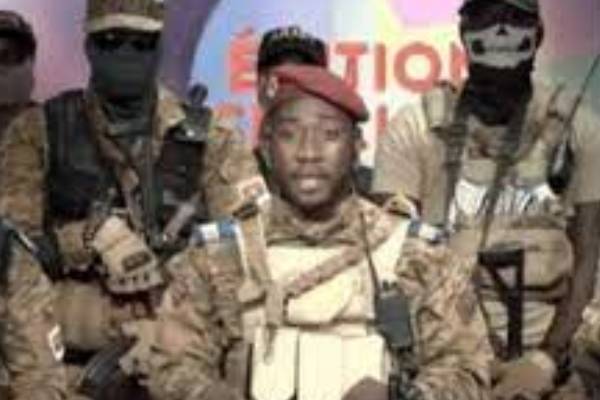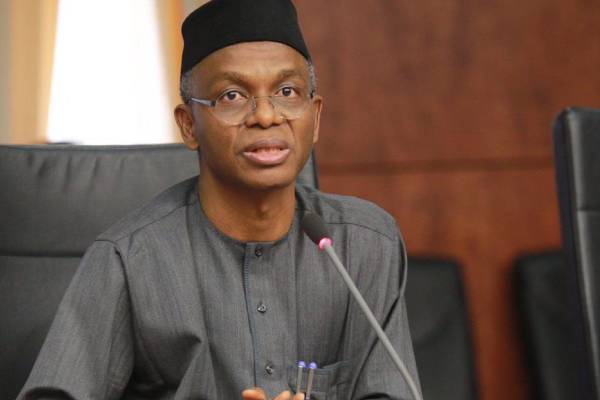Burkina Faso Coup leader says the situation in the country is under control and urged people to refrain from acts of vandalism targeting the French embassy.
The comments came on Sunday after security forces fired tear gas at dozens of rock-throwing protesters outside France’s embassy in Burkina Faso’s capital, as unrest simmers in the West African nation following its second coup this year.
“We want to inform the population that the situation is under control and order is being restored,” military spokesman Captain Kiswendsida Farouk Azaria Sorgho said on national television.
He was flanked by coup leader Captain Ibrahim Traore and other armed and masked soldiers.
Sorgho called on people to “desist from any act of violence and vandalism … especially those that could be perpetrated against the French embassy or the French military base”.
With French troops watching from the embassy’s roof, protesters set fire to barriers outside and lobbed rocks at the structure when the tear gas volleys were fired.
The latest spasm of violence to convulse Burkina Faso began on Friday when junior military officers toppled Damiba, accusing him of failing to quell attacks from armed groups linked to ISIL (ISIS) and al-Qaeda. Damiba had come to power in a January coup.
A statement on Saturday signed by Traore said Damiba “is believed to have taken refuge in the French base at Kamboinsin in order to plan a counteroffensive to stir up trouble in our defence and security forces”.
Later on Saturday, Damiba rejected the allegations that he was at a French base but provided no further details about his whereabouts.
France, which colonised Burkina Faso in the past, denied “any involvement” in the coup or that “Burkinabe authorities have been hosted or are under the protection of the French military”.
“The camp where the French forces are located has never welcomed Paul-Henri Sandaogo Damiba, nor has our embassy,” the French foreign ministry said in a statement.
It marked the second coup this year in Burkina Faso and the latest in the Sahel region, much of which is battling a growing military operation by armed groups.
In a written statement on the presidency’s official Facebook page, Damiba urged his rivals “to come to their senses to avoid a fratricidal war that Burkina Faso doesn’t need”.
The general staff of Burkina Faso’s army dismissed the coup as an “internal crisis” within the military and said dialogue was “ongoing” to remedy the situation.
Damiba himself came to power in a coup in January, installing himself as leader of the country’s 16 million people after accusing elected president Roch Marc Christian Kabore of failing to beat back armed fighters.





